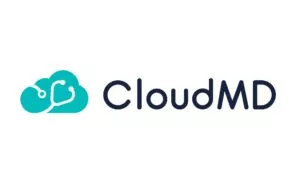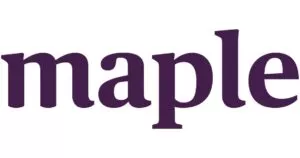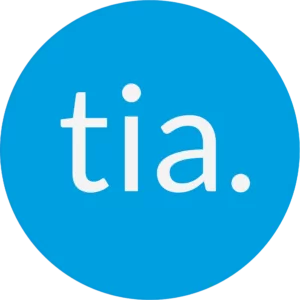
The Best Telehealth Providers in Canada
The best online doctors in Canada
Canada has long known the benefits of progressive healthcare. However, certain cracks that had revealed themselves at the beginning of the decade have not been repaired. For many today, it can be challenging to access appropriate healthcare when you need it, especially when the option sits between sitting in a busy waitroom or waiting for a family doctor to start accepting new patients. Luckily, telehealth has established itself as a strong option for those that need healthcare in a pinch. You can see a doctor from the comfort of your own home, helping you figure out health challenges you have, and getting a plan of care going forward.
While a young industry, telehealth has changed a lot over the past few years, and so this article will help you find a platform that is right for you.
What is telehealth?
Telehealth is the application of communication technology, like video calls and test messaging, to access healthcare remotely. Telehealth platforms connect doctors and patients via call or text, conveniently and confidentially.
Despite Canada’s history of progressive healthcare, it can be hard to see a doctor for your health concerns. Seeing a healthcare professsional usually means booking an appointment days away, or sitting in a waiting room for hours. Telehealth lets you deal with those less-urgent medical issues quickly without leaving your home, so you don’t have to take time off work or make arrangements outside of your usual schedule.
While telehealth is not going to replace in-person healthcare, it’s an important avenue you can use to invest in the health of your family or employees. Telehealth is even shown to reduce absenteeism in workplaces. This burgeoning industry is proving it has a place in the world of healthcare.
Pricing: How Canadian telehealth providers compare
Telehealth Service |
Fees/coverage |
| Mednow.ca | $8.99 dispensing fee. Insurance or provincial plans like OHIP or BC Pharmacare can be billed. |
| CloudMD | Available only through your company’s benefits package. |
| Teladoc | No fees as long as you are accessing Teladoc through a benefits package or insurance. |
| WELL Health Technologies |
|
| Maple | Membership: $79.99 / month |
| Dialogue | Only accessible if the employer offers it through benefits. |
| TELUS Health | Only accessible if the employer offers it through benefits. |
| Viva Care | Free for BC residents. |
| Medeo Virtual Care | Available only through your doctor’s office. |
| VirtualClinic+ | Appointments start at $30+. Covered in Alberta, BC, and Ontario with a valid health card. |
| Felix | $40 online visit fee. |
| Tia Health | Free in Ontario, Alberta and British Columbia with a valid health card. $50 per visit for other provinces. |
| Inkblot Therapy | $90 per hour long session. 15 minute consultations for a new practitioner are free. |
| GOeVisit Smart Exam | Subscription:
|
| Focus Mental Wellness | Available through benefits.
|
| Mind Beacon | Available for those whose employer has signed up. |
Telehealth in Canada
While doctors have been discussing health with their patients via telecommunications for many years, telehealth reached it’s current cultural relevancy as a result of the Covid-19 Pandemic of the early 2020’s. During a period where the cultural focus had shifted towards health and wellbeing, yet so many were confined to their homes, meant that telehealth became
Today, telehealth diverted into different directions. As people returned to the office and we nudged closer to the pre-pandemic status quo, less people depended on telehealth. Many telehealth platforms have now shifted to offering employment benefits plans, while others remain dedicated to being accessible to all, but for a fee. Some specialize in mental healthcare and therapy, while others only worry about filling your prescriptions. Whichever it is you need from a telehealth service, you will be certain to find the right one on this list.
Telehealth Wait Times in Canada: The wait times vary between province and service used, anywhere from a few short minutes to several days depending on where you’re located and what app or service you’ve decided to work with. However, instant appointment telehealth services are increasingly accessible in Canada.
For information on the rules and regulations in your province, the Federation of Medical Regulatory Authorities of Canada (FMRAC) has a full guide on the recommendations and minimum regulatory standards for physicians.
There are telehealth providers for all sorts of different preferences in the guide below, so you’ll probably be able to find the best online health service in Canada suited to your needs by the end of this article.
DISCLAIMER: The products are not presented in any particular order.
Mednow
Mednow is an online pharmacy that makes getting your prescriptions online quickly, simply, and cheaply. Before going to the doctor’s office next time you need a refill or new medication, you can get your prescription through MedNow and pay only the cost of medication.
In less than a few minutes you can transfer your prescription refills from your old pharmacy or snap a photo of your current prescription to get started. You can also call in by phone if that’s easier for you. You get real-time delivery notifications on the status of your prescription deliveries, and they guarantee a fast, contact-less experience.
Greater Toronto and Greater Vancouver area users can expect their prescription as soon as the same day in most cases, and Ontario and BC can expect the next day or sooner. All other provinces will still have free shipping, though it can take a bit longer to get your package by mail. Pharmacists are available through Mednow.ca, 24/7 for support. Phone, video calls, and text-based interactions are their options. If you don’t feel like calling, you can text, or if you’d like a video call for a more personable interaction, you can do so. They can also connect you to an available virtual doctor if needed. You may however be charged for a doctor’s visit, depending on your provincial coverage. Ontario and BC may be covered with valid health card identifications.
Pros
- 24/7 support for the pharmacy.
- Quick and easy set-up.
- Free shipping within all of Canada.
Cons
- Virtual doctor appointments may not always be covered by provincial insurance.
- Same day shipping limited to BC and Ontario.
CloudMD
CloudMD is a telehealth service specializing in Employee and Family Assistance Program (EFAP) available for those whose workplace has signed up. If you are an organization looking for a telehealth provider, CloudMD is a strong candidate that will give you and your employees peace of mind.
Cloud MD operates Kii, a telemedicine platform which integrates “EFAP, Mental Health Treatment, Telemedicine, Occupational Health and Absence Management” into one single platform. In minutes, you can meet with a nurse care coordinator with Kii, to help you navigate what healthcare you need, make appointments, and build a personalized care plan.
Whatever your health needs, CloudMD employs licensed professionals qualified to practice, including over 1500 mental health professionals, 1400 medical professionals, and 600 rehabilitation specialists.
Whether you or your employees need your telehealth for prescription renewals, diagnosing non-emergency conditions, discussing the difficulties of work or life, you can access it through Kii.
Pros
- Accessible through Android, iPhone, and PC.
- Offers mental health services as well.
- Helpful and friendly support staff.
Cons
- Only available to those whose employer/organization has signed up.
Teladoc
Teladoc is a virtual healthcare platform designed to be a part of your organization’s benefit package. Teladoc provides 24/7 access to licensed health professionals by phone, video, or the web wherever you are.
Once you request an appointment, you will soon be able to virtually meet with a healthcare professional to chat about your health, diagnose potential health complications, and even prescribe medicine to be picked up from a local pharmacy.
Using their services are free and can be accessed 24/7, across the country. You can even be taken care of when you’re travelling in the United States, though if you need a prescription you need to consult your travel coverage beforehand.
Teladoc is only available through your employer or insurer, and you can check if you have access and are covered by filling out their quick account setup, whether online, downloading the Teladoc app, or calling them at 1-888-983-5236.
Pros
- Can be accessed 24/7.
- Can be used abroad in the United States while travelling.
Cons
- Only available through employer or health insurance such as Blue Cross that covers it – otherwise you cannot access their services.
WELL Health Technologies
WELL Health Technologies is both a primary healthcare operator and a technology innovator combining professional healthcare expertise with technology to better help physicians and patients that result in improved experiences and health outcomes.
WELL’s main clinics offer virtual telehealth as well, and is covered in BC, Alberta, and Ontario with a valid health card. All you need to do is book with a doctor, connect through phone, video, or secure messaging, and once the appointment is done you receive referrals, requisitions, prescriptions, or any other documents you might need. Free delivery on prescriptions in Canada. There’s an option to book with your own family physician as well if your doctor is signed up for it to access.
For Canadians outside of BC, Alberta, and Ontario WELL Clinics offers their telehealth services for $30 with no additional fees.
Pros
- Affordable.
- Anyone within Canada can access it.
- Fantastic support staff and FAQ
Cons
- There is a $30 charge outside of BC, AB, and ON
Maple Telemedicine
Maple is a telehealth platform designed to quickly and easily connect you with a doctor and get you on your way to feeling better. Maple membership costs $79.99 per month, and extends the care provided for your family (including spouse and any dependents under 18).
You can log into maple either on desktop or through their mobile app, describe your symptoms and describe what you’d like help with. Once the doctor reviews your request, they’ll determine whether they can help with what you need, and if so will continue the appointment. Afterwards, any prescriptions or sick notes will be available within the Maple app and prescriptions can be either delivered to your home or automatically faxed over to a nearby pharmacy for pickup.
Additionally, Maple offers appointments with a specialists, including mental health physicians, pediatrics, nutrition, dermatology, and other types of medical specializations, as listed here. While the membership fee does not cover these specialists, it does include an $80 credit that goes towards seeing any specialist. Otherwise, you can cover these specialist visits through your insurance. if applicable.
Pros
- Accessible to all Canadians.
- Provides many different specialists, covering a large amount of non-urgent healthcare needs.
Cons
- Specialists cost extra, on top of the $80/month membership fee.
Dialogue Technologies
Dialogue is an integrated health platform with tailored healthcare solutions for organizations to partner with to provide health benefits for their employees. Whether you are looking for an Employee Assistance program, or to provide your employees with Primary Care, Mental Health care, or Wellness benefits, Dialogue is a strong choice.
Dialogue members are able to access unlimited medical care 24/7, which they can choose to do via text, call, or video chat. Dialogue employs bilingual professionals, so you can speak to doctors in English or French – whichever you are more comfortable with.
Dialogue emphasizes continuity of care in their employees and platform. All your medical history is kept securely within the platform, accessible to only the medical professionals, so you do not need to start from scratch if you end up seeing a different healthcare provider. The team is multidisciplinary, helping achieve a better clinical approach for full patient assessments whether you have chronic issues or something more acute.
They use the highest standards of safety and security, and their platform allows for patient history to be accessed for an easier and more efficient consultation with their teledoctors.
If Dialogue interests you, you can start the dialog with a demo here.
Pros
- Offers continual care and access.
- Available 24/7 throughout Canada
Cons
- Only accessible if your employer has signed up for access.
TELUS Health
TELUS Health
Canada’s telecom giant operates Telus Health, a robust healthcare platform for organizations to cover the healthcare needs of their employees and their families. With solutions for mental health care, pharmaceutical needs, or even just improving your general well-being, partnering with Telus Health is an investment in the health of your team.
Telus Health is available 24/7 across the nation, in both English and French. In moments, you will be connected with healthcare professionals licensed to practice in your province. As part of Telus Health employee benefits, members can access TELUS Virtual Care to receive healthcare from the comforts of home. These benefits may be shared with a spouse or partner, and any dependents under the age of 26.
You can access Telus Health through your browser, or through the Telus Health MyCare app. The app is designed to complement the care patients already receive from their family doctor, or cover those who don’t have a family physician already.
Telus Health emphasizes continuity of care, where you can consent to medical information instantaneously though Electronic Medical Record integration. In today’s digital landscape where the security of your data is so important, Telus protects data so only your healthcare practitioners have access, and keeps it safe from everyone else with end-to-end encryption.
For more info, or to schedule a demo, you can contact Telus Health here.
Pros
- Available 24/7 in Canada.
- Works to complement care from/with your doctor.
Cons
- Only available if your employer signed up for it.
Viva Care
While Viva Care is a walk-in clinic and family practice service with physical locations in BC and Manitoba, Viva Care also offers appointments over-the-phone and online.
If you’re a resident of BC, you can access Viva Care’s telehealth services for free seven days a week, 8 am to 9 pm, no matter where you live. They’re one of the only groups in BC where you can see a doctor online through the telehealth system and have the opportunity to see the same physician in one of their clinics in person if need be or if wanted in the future.
They offer their teledoctor services in English and French, but also include Cantonese, Hindi, Korean, Mandarin, Punjabi, Tagalog, and Urdu. You can consult a doctor directly from your smartphone, tablet, or desktop computer and can see a doctor within minutes without any of the doctor’s office waiting.
Like other telehealth clinics, you can get your prescription sent to your door for free or faxed over to your closest pharmacy. They do have a 24-hour notice for cancellations or reschedules, and there is a $50 fee if you no-show or cancel after that time before your appointment.
Pros
- Available in multiple languages.
- Calls/texts available within minutes, generally.
Cons
- Not available in other provinces; Available in BC only.
Appletree Virtual Care (Holding off)
Appletree Medical Group is one of Canada’s largest multi-specialty groups, which has provided healthcare to Ontario since 1992. However, if you cannot get out to one of Appletree’s clinics, you can still see a doctor through Appletree’s Virtual Care.
Appletree provides Virtual Care to Ontarians that is covered under OHIP, with some paid Virtual care services offered to those not covered by OHIP (which can be reimbursed though company insurance, university benefits, or by your home province). While not all medical services offered by Appletree are covered by OHIP, they do have a private services price list on their website. If you don’t have OHIP coverage, the cost of the appointment is $77. Telemedicine appointments are covered by most private benefit plans.
Appletree offers Virtual Care appointments for a number of specialists, including dermatology, pediatrics and psychiatry. Since Appletree is a full medical practice, you can seek out specific doctors for maintained continuity of care when booking, whether that doctor is from an in-person appointment, or from a previous Virtual Care appointment. As with all telemedicine, they cannot help with certain medical issues that require hands-on diagnosis , and they can’t prescribe controlled substances like narcotics.
Pros
- Free for Ontario residents.
- Great help and staff if you have any questions.
Cons
- Not accessible for other provinces, only Ontario.
Telehealth Ontario (holding off)
Health811 offers free and fast medical advice via phone on computer to those living in Ontario. While Health 811 will not diagnose your ailment or prescribe medication for you, it is a helpful tool to guide you when you are feeling hurt or unwell.
One of the worst things when you feel poorly, but not that poorly, is the uncertainty if you will need to see a doctor or not. Health811 features a symptom assessment tool that you can fill out information about your demographics and symptoms, and receive an assessment report with advice about what you should do next.
Health811 is open at any hour of the day, every day of the week. A registered nurse is always available to take your call and help you decide whether to handle whatever medical issue you’re having yourself, visit your family doctor, or go to the ER.
Telehealth Ontario toll-free phone number: 1-866-797-0000
Pros
- Free for Ontario residents 24/7.
- Great care and help.
Cons
- Only available in Ontario.
- At this time, they only take calls for telehealth appointments, not texting.
Medeo Virtual Care
Unlike many of the telehealth options which connects you to a doctor you have never met before, Medeo is a telehealth platform that connects you to the healthcare professionals at the clinic you already go to. Medeo is available only to those who have been invited to access the telehealth service from their clinic.
Medeo is a powerfully effective tool for clinics and their patients alike. Patients can securely exchange information and files with their doctor, connect via virtual call and even book in-person appointments! Medeo also offers Medeo plus, which for $2.99 a month offers a safe and secure place to store all of your medical files you might need to access – like vaccination records, or lab results.
Pros
- Easy communication with your doctor – not some doctor you have never met before.
- Medeo Plus organizes and protects important medical information.
Cons
- Only available if your medical clinic has already signed up, and invited you, to Medeo.
Virtual Clinics
Virtual Clinics is part of WELL Health Technologies Corp.’s brand of virtual care. Virtual Clinics is free for BC, Alberta, and Ontario residents, can be reimbursed if your insurance covers it, and is otherwise $30+ for non-BC, Alberta, or Ontario residents across Canada with no hidden extra fees – though they are working to make this available for free for other provinces.
You can choose which doctor you want to see via phone, video, or secure messaging from wherever you are, and there is no added or extra fee if your appointment time goes longer than expected. They’re available 24/7 to access, and if your family doctor is working with the Virtual Clinics platform, you can ask to speak to them through telehealth availability.
Just like a regular doctor’s office visit, the doctors are licensed and are responsible for understanding your case, medical history, and determining the appropriate treatment. If they aren’t able to help you they may advise you to make an in-person clinic appointment or visit a hospital.
Prescriptions can be delivered to your home for free across Canada or can be sent to a pharmacy near you for pick-up.
Pros
- Affordable.
- Available for every Canadian in any province.
Cons
- $30/visit outside of BC, Alberta, or Ontario.
Felix
Felix offers an easy and virtual way for Canadians to get medications such as birth control, hair loss, and acne medication, without waiting for hours in waiting rooms.
While telehealth today can be hard to access, Felix is available to all Canadians that are 18 or older, with some exceptions for certain prescriptions that are available for Canadians 16 and older. Felix ships to Alberta, BC, Manitoba, Newfoundland and Labrador, Nova Scotia, Prince Edward Island, Saskatchewan and Ontario.
Signing up to Felix is easy: you create an account, set up your profile, and submit your medical history, allergies, and current symptoms – if you have any. Your submission will be confidentially reviewed by a physician within 24 hours. After that, you can choose what your preferred medication is and an auto-refill schedule that works best if you want. Based on your medical history and consultation, you can get a prescription within 24 hours.
You can chat with the doctor to answer their questions and ask your own, with no rush. Felix does cost a $40 fee for your online visit. Medication is shipped to your door at no cost.
Pros
- Medication and help available to anyone.
- Ships directly to your door in most of Canada’s provinces.
Cons
- $40 online visitation fee.
- Focuses primarily on prescriptions.
Tia Health
Tia Health allows patients to connect with doctors in Canada by phone, video, or secure messaging on any device. You can choose your own doctor from their list of physicians, including language options for what you’re most comfortable speaking. Besides prescriptions, referrals, requisitions, and mental health services they’re also offering COVID-19 screening.
A benefit for anyone residing in BC, Alberta, or Ontario is that Tia Health is covered, while fees start at $30 for other provinces. At the time of your appointment, you speak directly to the doctor, no waiting or wasting time going into a clinic, travelling, or having to take time off work instead of resting. Referrals, requisitions, and any other documents you need are all online.
An added bonus is that free prescription delivery is available in Canada.
Pros
- Anyone within Canada can use it.
- Available 24/7.
Cons
- $30 fee outside of BC, Alberta, or Ontario.
Inkblot Therapy
InkBlot Therapy is a virtual therapy platform that enables you to speak with a licensed counsellor, social worker, therapist or psychologist to get the mental health help you need. Available through employee benefits, or as a paid telehealth option available to anyone, InkBlot makes it easier to tackle your problems with therapy.
Before booking your appointment, you’ll fill out a quick matching questionnaire that combines your personal details with the strengths of their providers that best match your needs and preferences. Then, you will get to have a 15-minute free consultation with each practitioner you select; only after you find a practitioner you want to work with will you then have to pay. From then on, individual therapy sessions through InkBlot are $90.00 per hour. If Inkblot is offered through your benefits, your sessions will be covered.
No external software is needed, just a microphone and a camera on your computer or laptop so that your care provider can both see and hear you during the session. They provide life-coaching and couples counselling as well as general therapy sessions. Covering everything from adjusting to a crisis or difficulty, setting goals, identifying negative patterns and adjusting them to be healthier, etc.
Pros
- Affordable mental health help.
- Very friendly staff and easy system to use.
Cons
- $37.50 each half-hour after the initial appointment.
GOeVisit Smart Exam
GOeVisit is a telehealth platform designed for accessibility and flexibility. Available to Canadian residents in both a subscription or pay-as-you-go format, GOeVisit is a great choice for anyone to use to stay on top of their health and wellness.
GOeVisit is accessible through browser, or you can download the free app for both Android or iOS. Once you have signed up with the service, clicking the “Get Care” button will open a form where you can describe your symptoms, or even upload a photo. Once you submit the form, one of GOeVisit’s healthcare practitioners will contact you quickly with a diagnosis, and potentially send a prescription to your nearest pharmacy, if needed.
GOeVisit’s subscriptions are billed either monthly or annually. Subscriptions are available for $10 per month, $99.95 annually for unlimited visits, where as the rate for Canadian families is $15 per month , $149 annually. Subscription services aren’t available for international users. There is also a pay-as-you-go pricing option that is $69 per visit for Canadian residents, Canadian families, or international visitors. If the medical practitioner cannot help you, you will not be charged for the consultation. GOeVisit can be offered as part as an employee benefit plant too.
Pros
- Available for anyone across Canada.
- Flexible subscriptions and pay-model makes taking care of yourself easy.
Cons
- Limited access to specialists.
Focus Mental Wellness
Focus Mental Wellness provides Canadians with mental health and substance abuse counselling across the country. Therapists are properly vetted, registered, and qualified to help with anything from depression and anxiety to substance abuse and gambling addiction.
Many of their therapists are covered by major Canadian insurance companies, so feel free to check if you’re covered for reimbursement while signing up. How it works is that you choose an appointment type, choose the therapist you want to work with, the date and time that works best for you, confirm payments, and then have your session on your allotted date. Depending on what kind of appointment you’re comfortable with you can have webcam video sessions, talk counselling only needing a phone, or even secure text messaging.
Focus charges $120 dollars for 60 minute Phone or Video therapy session. They also offer text therapy for $116 a month. These costs can be reimbursed by private insurance, or your employee benefits.
Pros
- Specializes in several areas.
- Unlimited text is available.
Cons
- Can be pricey for some if not covered by insurance.
Mind Beacon
Owned and operated by (the previously covered) Cloud MD, Mind Beacon is a teletherapy platform for whenever and wherever you need to speak to a mental health professional. Accessible through your employer’s provided benefits (if they have signed-up), or as an individual plan you can purchase through providers such as SureHealth or CoverMe.
Mind Beacon offers a variety of virtual therapies, notably including live One-on-One sessions, and guided Cognitive Behavioural Therapy (CBT). All of which are with registered professionals including social workers, psychotherapists, and psychologists. When you seek therapy through Mind Beacon, you will first need to complete an assessment, where you will describe the challenges you need help facing. After, you will be assigned a mental health professional who you will work with, and receive as a treatment plan tailored to your needs. Whether you need help on any self-directed activities as part of the treatment plan, or you are just dealing with a hard day, your therapist is only a few clicks of the phone screen away through messaging. Professionals are available who spoke both English and French.
Beacon is great for anyone that would like help dealing with anxiety, depression, PTSD, and insomnia. They don’t treat substance abuse or eating disorders and ask that you choose a different therapy provider.
Pros
- Available for all Canadians.
- Anywhere at any time.
Cons
- Does not provide help for all mental health categories.
Frequent telehealth questions
What are the benefits of telemedicine services?
The benefits of telehealth or telemedicine services are lower wait times, no need to travel, take time off work, bring your children to a busy doctor’s office, or be stuck waiting for office hours since many telehealth apps or sites are available 24/7 any day of the week.
Are teledoctors a good option for kids?
Telehealth appointments can be a great option for kids (and parents) for most issues that come up over the years such as colds, flus, rashes, pink eye, allergies, and follow-up visits. They can also help with mental health such as anxiety or stress – which can be important during a global pandemic.
The main benefit is that you don’t have to haul kids to a waiting room, especially if you have more than one or your sick child is feverish or vomiting and it would be better to keep them put until you get guidance from the doctor. Unless of course, it’s an emergency, in which case it’s best to head to the ER or urgent care.
Can telehealth prescribe medication?
Yes, telehealth practitioners can prescribe certain types of medication. Telehealth practitioners often cannot prescribe controlled substances, however some platforms hire specialists who can prescribe controlled substances if necessary.
Telehealth providers can also ship medication to you directly, or send the prescription to a local pharmacy for you to pick up.
Can telehealth give referrals?
Telehealth companies can give referrals to specialists if follow-up care is required. Keep in mind some telehealth companies have their own specialists on their roster, and so a referral might to be for follow-up telehealth appointment, and not an in-person appointment with a specialist.
How much does telemedicine cost?
The price varies depending on where you’re located and which telemedicine provider you use. Some services such as Tia Health are covered within provinces like BC, Alberta, or Ontario, while others such as Teladoc are free to use regardless of where you are. Prices range between $0 and upwards to $40.
Is telehealth cheaper than an office visit?
Yes and no. While most health care provided in Canada is free, depending on what province you’re in and which telemedicine provider you go with, Telehealth may not be covered or entirely free. That said, it can still be much cheaper than a doctor visit if you need to schedule time off work, pay for child-care, travel, or pay for things like parking depending on where your doctor clinic visit may be.
Do I need Wi-Fi for telehealth?
Generally speaking, yes. Mobile data if you’re using a smartphone outside of Wi-Fi areas. If you’re not using Wi-Fi, you may get charged for data use depending on what your telehealth app or visit requires, like video conferencing or sending images.
Do I need a camera for telehealth?
Not necessarily depending on how you’re communicating with whichever telehealth app or website you’re using, and what your reason for contacting a physician is for. If it’s for something like a rash or other visual concerns, then, yes, a camera is encouraged for accurate results.
Read more

The Best Foot Massager in Canada
Home foot massagers can make for a great purchase that lasts for years and can pay itself off in everyday use.

The Best Reusable Face Masks in Canada
Prevent the spread while supporting Canadian businesses with a selection of reusable fabric masks with a variety of designs available.

The Best SAD/Light Therapy Lamps in Canada
Winter blues? Not With these light therapy lamps.

The Best Foot Spas in Canada
Foot spas are perfect for when you don’t feel like going out to an actual foot spa place.

















Great post, you have pointed out some good details , I likewise believe this s a very excellent website.
poz2k4
c3phr9
Great post. I am facing a couple of these problems.
Morales- Ledesma L, DГaz Ramos JA, Trujillo HernГЎndez A priligy online 2001, 15 53 61
16048j
На этом сайте размещены свежие новости РФ и мира .
Представлены значимые репортажи на различные темы.
https://ecopies.rftimes.ru/
Читайте важнейших новостей каждый день .
Объективность и скорость подачи в каждом репортаже.
Inuikii — это швейцарский бренд, специализирующийся на стильной зимней обуви. Он сочетает уникальный стиль и высокое качество, создавая теплые модели для зимнего сезона. Бренд применяет натуральные шерсть и водоотталкивающие материалы, обеспечивая комфорт в любую погоду. Inuikii востребован среди городских модников, благодаря оригинальным силуэтам и практичности.
http://entertainmentcentralla.com/__media__/js/netsoltrademark.php?d=classical-news.ru%2Finuikii-stil-teplo-i-elegantnost-v-zimney-obuvi%2F
mx77ef
glsdkw
r9sjxh
end8ej
6pmvz6
Here offers a wide selection of stylish timepieces for your interior.
You can check out contemporary and vintage styles to complement your home.
Each piece is carefully selected for its design quality and functionality.
Whether you’re decorating a creative workspace, there’s always a perfect clock waiting for you.
best nature sound 7 color alarm clocks
Our assortment is regularly renewed with exclusive releases.
We focus on a smooth experience, so your order is always in professional processing.
Start your journey to perfect timing with just a few clicks.
Here, you can discover lots of casino slots from famous studios.
Players can try out classic slots as well as new-generation slots with high-quality visuals and bonus rounds.
Whether you’re a beginner or an experienced player, there’s a game that fits your style.
casino slots
Each title are available 24/7 and designed for PCs and tablets alike.
All games run in your browser, so you can jump into the action right away.
The interface is easy to use, making it convenient to browse the collection.
Join the fun, and discover the excitement of spinning reels!
Hello I am so happy I found your blog, I really found you by error, while I was browsing on Aol for something else, Regardless I am here now and would just like to say cheers for a marvelous post and a all round interesting blog (I also love the theme/design), I don’t have time to look over it all at the minute but I have bookmarked it and also added in your RSS feeds, so when I have time I will be back to read a lot more, Please do keep up the excellent work.
Questa pagina permette l’ingaggio di lavoratori per compiti delicati.
Gli utenti possono selezionare esperti affidabili per missioni singole.
Le persone disponibili sono selezionati con severi controlli.
ordina omicidio l’uccisione
Con il nostro aiuto è possibile consultare disponibilità prima di procedere.
La qualità resta la nostra priorità.
Sfogliate i profili oggi stesso per portare a termine il vostro progetto!
“it is value for money. acrylic panel. it came with a dent on one side. it is beautiful. it doesn’t seem to be ATX….” Read more Help Center What awaits you at the pinnacle of the Tower of Babel? Will your journey conclude with happiness? Discover the truth for yourself. Tower Quest Legacy feels like it’s trying to tick all the boxes, but much like a half-baked RPG side quest, it ends up being more style than substance. Play’n GO has introduced some light progression mechanics with the Red and Blue Flask meters, and the battle mechanic during the free spins round isn’t terrible, but not nearly as sophisticated as what we’ve been spoiled with in games like Eternal Clash and Dystopia Rebel Road by Octoplay. A couple years ago I wrote a Sega Genesis demo called Retail Clerk ’89. I decided to try making a general-purpose adventure-adjacent game engine out of that code. Instead I created a demo specifically intended for speedrunning with it. Close enough I guess.
https://lifeinsys.com/user/exnasisdi1984
People love the Mine Island game because it’s artistically appealing and easy to use. The graphics are meant to be bright and colourful, and the bright colours and fine details make the scene look like a tropical island. Mine Island has many players worldwide because it’s easy to use and has fun game features. The game has a unique theme, different from other casino games, and it is about a kangaroo traveling through dangerous island terrain. Refer-a-Friend Bonuses: Some platforms offer rewards for inviting friends to download and play Mine Island. Opting for the Mine Island app download offers several advantages over browser-based versions: Explore mines, collect ore, jewels and a stone key in each level. Avoid getting knocked down by vicious enemies who desperate to satisfy their wicked desire. Use your pick-axe and explosives to defend yourself. Upgrade character abilities, buy consumable and cloths with collected money and jewels to help you through the game.
https://t.me/s/flagman_official_777/70
https://t.me/s/official_izzi
https://t.me/s/wiwniwnwin
sahkba
нижний новгород душевная медицина [url=www.psihiatry-nn-1.ru]www.psihiatry-nn-1.ru[/url] .
Дизельное топливо — это основной компонент энергетики, который активно применяется в транспорте.
Благодаря своей высокой энергоэффективности дизельное топливо позволяет достичь длительную производительность оборудования.
Надёжное топливо способствует долговечность работы двигателя.
Большую роль имеет химический баланс топлива, ведь низкосортные добавки могут снизить эффективность.
Компании, занимающиеся реализацией дизельного топлива должны выполнять требования качества.
Новые методы позволяют улучшать показатели топлива.
Перед приобретением дизельного топлива важно проверять поставщика.
Доставка и содержание топлива также сказываются на его стабильность.
Низкосортное ДТ может вызвать поломке двигателя.
Поэтому контроль качества продукта — необходимое условие.
На рынке представлено разнообразие видов дизельного топлива, отличающихся по составу.
Зимние марки дизельного топлива гарантируют эксплуатацию двигателей даже при низких температурах.
С развитием инноваций качество топлива повышается.
Продуманные решения в вопросе использования дизельного топлива обеспечивают повышение производительности.
Таким образом, правильно подобранное ДТ является основой эффективной работы любого оборудования.
Counter attack goals, fast transitions and clinical finishes
成何体统2026 丞磊王楚然双穿书 高清现代甜宠 无广告高清观看